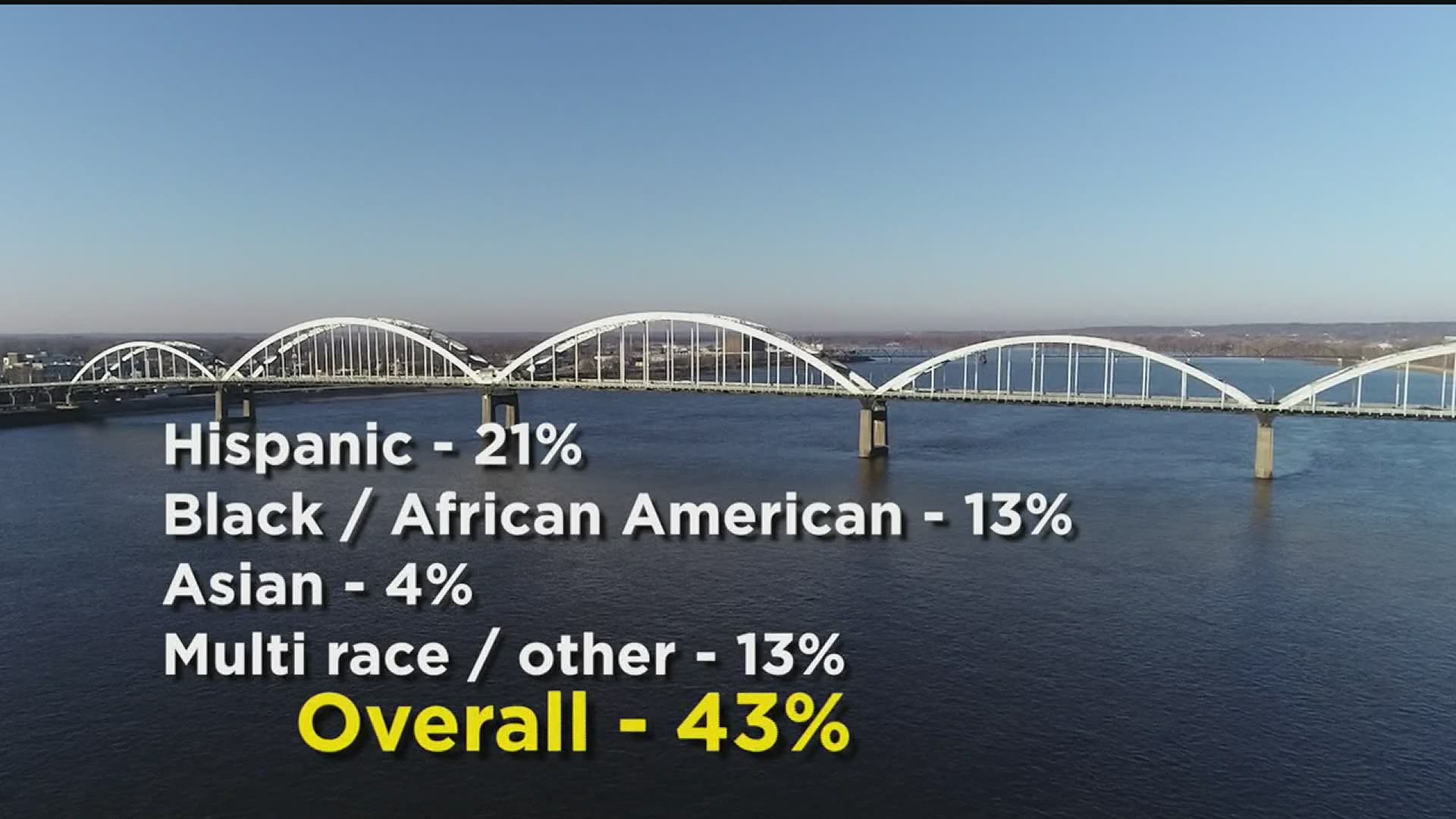DAVENPORT, Iowa — "Same with the African American community, which represents about 7 percent of the Quad Cities community: About 13 percent of the ones we’ve tested are positive."
Race - % of Population - % of Unity's Positive Cases
Hispanic – 9% of population - 21% of positive cases
Black/African American – 7% of population - 13% of positive cases
Asian – 2% of population - 4% of positive cases
Multi race/other – 4% of population - 5% of positive cases
While 85 percent of the Quad Cities residents are white, nearly half of all positive tests (43 percent) have come from non-white groups
Joiner attributed the higher rates to underlying health factors and high risk jobs.
"When you look at the African American, and the Hispanic community specifically, we know that the prevalence of diabetes, the prevalence of heart disease, and some of these other comorbidities are higher in those communities. And coupled with COVID-19, the impact of that can have serious health concerns."
Exposure through high risk jobs also contributed to these higher rates, Joiner suggested.
"Just looking at those high exposure jobs, transportation jobs, bus drivers, those that work in factory settings in close quarters with others, those that work in hospitality: You open yourself up to higher risk of exposure. And I think that’s part of what we see here in the Quad Cities."
He added that cultural customs, like the sharing of food, can also be a factor.
Collecting the data was one thing. With the findings, Joiner said the question was what could the hospital do about it.
"The covid care packages was an idea and funded by John Deere to look at what is the solution and how can we help getting on the prevention side of promoting health and wellness, a clean environment."
John Deere provided funding for 1000 covid care packages, packed with hygiene items like hand sanitizers, disinfectants, and toilet paper. Each package also contained educational material, including in other languages, to promote health and wellness and safety.
UnityPoint Health - Trinity then partnered with community groups World Relief, Martin Luther King Jr. Center, Esperanza Center, and Friends of MLK to distribute the care packages to undersserved communities in the Quad Cities and the Des Moines regions.
Davenport NAACP Board Member Shirleen Martin has seen the statistics wreak havoc in the African Amerian community. Members of the Davenport branch of the NAACP in recent weeks launched a health initiative in response to the COVID-19 pandemic, when the effects on its community became evident.
"One thing that we noticed is our numbers (of infections) are higher than our local population as far as in representation," Martin said.
"We have the poorest health care that’s given out there," she said of the black and Latino community.
She said education is key, "letting people know what the real facts are, what are the facts on how to be safe."
The black community once again bearing the brunt of racial inequality,
"We are dealing with this pandemic, and we are also dealing with a murder," she said, referring to killing of George Floyd in Minnesota by members of the police force. "How do you support that and in the same breath, stay healthy?"
The NAACP Davenport branch is still encouring
"Our big message is to stay at home,' she said, but understood people wanting to go out and protest. "We need to wear masks. I look on tv, a lot of the protests, I see a lot of people that don’t have masks. We need to take the measures that are going to help us."
Joiner says the good news is, the infection rates have been higher amongst people of color, but the death rates have not.
"I think the positive thing here in the Quad Cities is we haven’t seen the same death rates that other communities have seen and I think that attributes to the fact that our hospital systems here locally are doing a phenomenal job and are well prepared to meet the need of the community.

